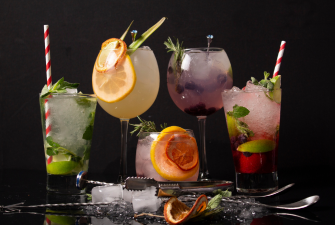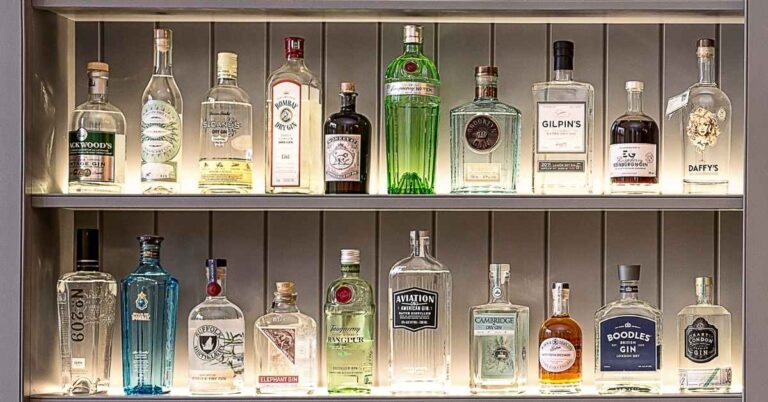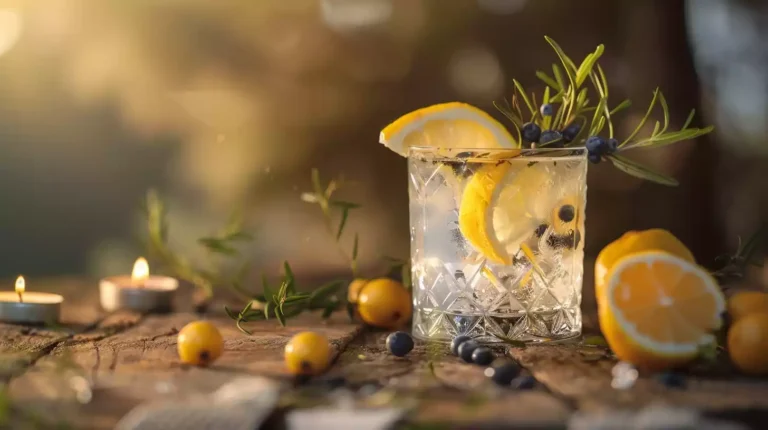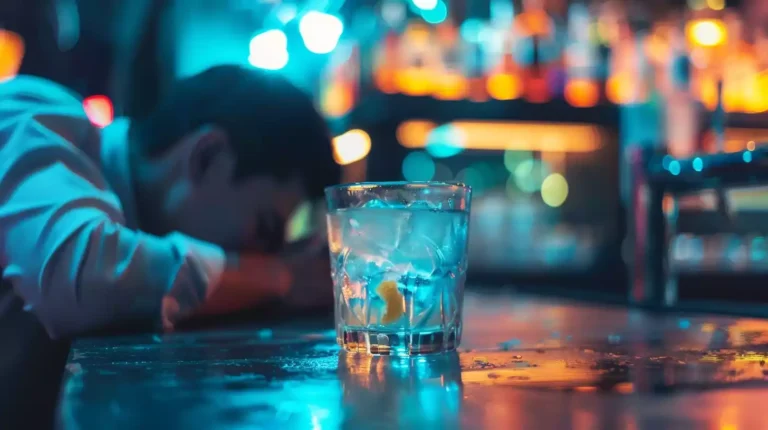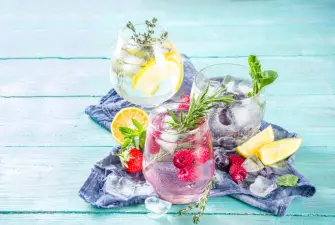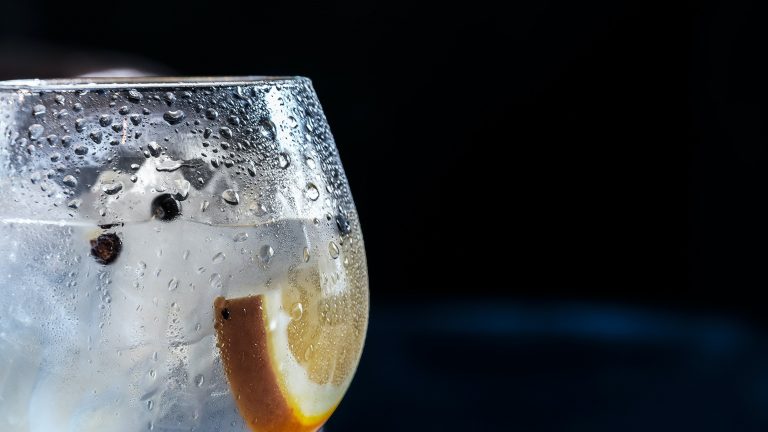Does Gin Get Better with Age? Does It Make a Difference?
Imagine gin as a complex puzzle, each piece interlocking to create a harmonious blend of flavors. But does this puzzle become more captivating with time, like a fine wine aging in oak barrels?
Some say yes, while others argue that the essence of gin is best experienced fresh.
We’ll explore the nuances of gin aging, the intricacies that shape this spirited debate and perhaps reveal the key to unlocking the true potential of this beloved botanical elixir.
Continue Reading to Understand These Key Points:
- Gin does not improve with age; it may lose its original botanical flavors.
- Aging can lead to flavor deterioration and loss of the intended taste profile.
- Proper storage preserves gin quality; freshness is key for flavor maintenance.
- Experts recommend consuming gin fresh; prolonged aging does not enhance quality.
The Science Behind Gin Aging
Gin, unlike wine or whiskey, doesn’t inherently benefit from aging due to its botanical composition and intended flavor profile. While aging gin in barrels can potentially mellow its flavors and introduce complexity, this practice isn’t as common as it is with other spirits.
The vibrancy of the botanicals used in gin is crucial to its taste profile, and prolonged aging can cause them to lose their freshness, leading to a less impactful flavor experience.
Oxidation is another factor to consider when discussing aged gin; although some gins may undergo changes in flavor over time, this doesn’t necessarily equate to an improvement in taste.
In essence, the science behind gin aging suggests that the traditional notion of aging spirits to improve them doesn’t directly apply to gin. Unlike whiskey, which thrives on extended aging in barrels, gin is best enjoyed fresh to maintain its botanical vibrancy and unique taste profile.
Aging gin can alter its flavors, but it doesn’t always result in a better product due to the delicate balance of botanicals that give gin its distinct character.
Historical Perspectives on Aged Gin
Uncommonly aged compared to its spirit counterparts like whiskey or rum, historically, gin has followed a distinct path in production. Traditional gin production focuses on meticulous distillation and blending of botanicals for its characteristic flavors, rather than aging in barrels.
Aged gin is a recent innovation where gin is deliberately aged in barrels to introduce new taste dimensions. This aging process can significantly alter the flavor profile of gin, adding hints of oak, vanilla, and spice not typically associated with traditional gin.
Aged gin showcases the industry’s willingness to experiment and innovate for unique taste experiences.
Factors Influencing Gin Maturation
I believe it’s crucial to understand the key factors that influence the maturation of gin.
Factors such as the botanical selection, quality of ingredients, and the distillation process play a significant role in shaping the final flavor profile of the gin.
These elements are more critical in determining the quality and taste of gin than the aging process itself.
Maturation Process Factors
Factors influencing the maturation of gin encompass a range of variables, from the selection of botanicals to the intricacies of the distillation process.
The quality of botanicals used plays a crucial role in determining the flavor profile of gin, while the distillation process can impact its overall character.
Storage conditions are also significant, as factors like oxidation, changes in temperature, and exposure to light can influence the evolution of gin’s taste over time.
Enthusiasts may opt for aged gins that have been stored in barrels for unique flavor development.
It’s essential to emphasize proper storage practices to maintain the quality of gin, although aging in the bottle itself doesn’t substantially alter the taste profile of the spirit.
Influence on Flavor
The botanical selection greatly influences gin flavor development during maturation. Factors like botanical quality, distillation methods, post-distillation processes, and storage conditions shape the final flavor.
The choice of botanicals and distiller’s skill in balancing flavors are crucial. Barrel aging can add unique characteristics, but careful storage is essential to prevent flavor deterioration.
To enjoy the intended flavors, consume gin within the recommended timeframe.
Tasting Notes: Aged Vs. Unaged Gin
Aged gin displays a more subdued and refined taste profile, with subtle hints of wood, vanilla, and spices intermingling with the botanicals.
In contrast, unaged gin bursts with vibrant juniper and botanical notes, offering a fresher and more pronounced flavor experience.
The aging process in barrels elevates gin by adding layers of complexity, enhancing its depth, and providing a richer mouthfeel that distinguishes it from its unaged counterpart.
Aging Impact on Flavor
Influencing the taste of gin through aging, whether oak-barrel-aged or left unaged, significantly impacts the complexity and depth of flavor profiles.
Aging gin can mellow out harsh flavors, creating a smoother, more complex taste profile with woody, vanilla, and spicy notes similar to whiskey or rum. Aged gin showcases more depth, richness, and warmth compared to unaged gin, transforming botanical flavors for a unique and sophisticated drinking experience.
Maturation Process Comparison
Comparing the maturation processes of aged and unaged gin reveals distinct flavor profiles catering to different preferences among gin enthusiasts. Aged gin offers a smoother, complex flavor with notes of wood, vanilla, and spices acquired during maturation in barrels.
Unaged gin presents a juniper-forward taste, highlighting botanical flavors prominently. Unaged gin tends to be clear, while aged gin can exhibit a golden hue, showcasing additional flavor layers.
The maturation process shapes the taste and aroma of gin, providing diverse options for consumers seeking different sensory experiences. Understanding these differences allows enthusiasts to appreciate the nuances brought about by the maturation process in gin production.
Popular Aged Gin Brands
Experimentation with aging gin in barrels previously used for other spirits has led to the emergence of several popular aged gin brands in the market. These aged gins offer a unique drinking experience, influenced by the barrel aging process.
Some notable brands in this category include:
- Few Spirits Aged Gin: Known for its rich flavors influenced by oak and spices, Few Spirits Aged Gin provides a mellow profile with hints of vanilla.
- Citadelle Reserve Gin: This brand offers a complex taste profile with a balance of juniper berries, oak, and subtle spices, thanks to its aging process.
- Ransom Old Tom Gin: Aged to perfection, Ransom Old Tom Gin presents a smooth and approachable gin with a blend of oak, spices, and a mellow juniper undertone.
- Unique Flavor Profiles: Aged gins often showcase notes of oak, vanilla, and spices, creating a distinct character that appeals to gin enthusiasts looking for a different twist on traditional gin flavors.
Aging Gin at Home: DIY Methods
Utilizing DIY methods for aging gin at home enables enthusiasts to craft personalized flavor profiles by infusing botanicals or fruits into the spirit. Experimenting with different ingredients and techniques helps create a unique and customized gin tailored to individual preferences.
Common methods include using oak chips, mason jars, or small barrels to achieve the desired flavor profile.
Infusing gin with botanicals like juniper berries, coriander seeds, citrus peels, or spices can add complexity and depth to the spirit. Fruits such as berries, apples, or tropical fruits can impart a subtle sweetness and fruity notes. The aging process varies from a few days to several weeks, with each duration offering different levels of flavor intensity.
Through DIY aging, gin develops woody notes from the oak, alongside nuanced botanical influences, resulting in a more refined and sophisticated taste. Experimentation with various combinations of botanicals and fruits can lead to a truly distinctive gin with a balanced and harmonious flavor profile.
Expert Opinions on Aging Gin
Expert opinions on aging gin vary widely, reflecting the unique characteristics and complexities of this particular beverage. When it comes to the maturation process of gin, there are several key points to consider:
- Gin doesn’t improve with age like wine or whiskey, as it’s a distilled spirit that doesn’t mature in the bottle.
- The flavors in gin are set during the distillation process and don’t change significantly over time.
- Some experts argue that gin may lose its botanical flavors over time, affecting the overall taste.
- Proper storage can help maintain the quality of gin, but it won’t enhance its flavor profile with age.
While proper storage is essential to prevent gin deterioration, it’s crucial to understand that aging gin isn’t a common practice in the spirits industry.
Experts emphasize that the quality and flavor of gin are best preserved when consumed fresh, as prolonged storage doesn’t necessarily result in a more desirable outcome.
Should You Age Your Gin?
Aging gin isn’t recommended by experts due to its already developed flavors during the distillation process, which can potentially diminish over time, leading to a loss of its original botanical characteristics. Gin doesn’t improve with age like whiskey or wine.
The flavors and aromas in gin are carefully crafted during distillation, and aging can cause these botanical flavors to deteriorate. To preserve the quality and flavor of gin, it’s best enjoyed when fresh to fully appreciate its intended taste profile.
Properly storing gin in a cool, dark place can help maintain its characteristics over time.
Final Thoughts
While gin doesn’t technically improve with age like wine or whiskey, the aging process can bring about unique flavors and complexities to the spirit. Aged gin can be a masterpiece of botanicals and aromatics, creating a symphony of flavors that dance on your palate.
Whether you prefer your gin young and vibrant or aged to perfection, the choice is yours to savor and enjoy.

